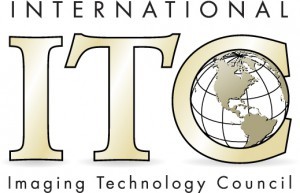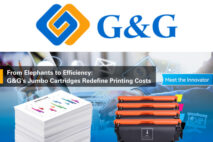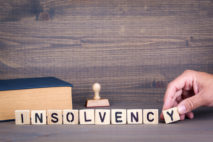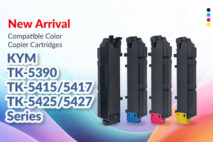Not long after Lexmark sent numerous remanufacturers letters, warning them that that they could agree to its one-time settlement terms now or risk facing a patent-infringement suit, the International Imaging Technology Council (Int’l ITC) urged remanufacturers to contact the council for help (see “Lexmark Warns U.S. Remanufacturers to Settle Now or Be Named in Infringement Suit”). We recently heard from the always outspoken Tricia Judge, executive director of the Int’l ITC, about her organization’s view of Lexmark’s strategy and what the Int’l ITC is doing to help.
Background
To summarize, in its recent International Trade Commission (ITC) complaint (see 337-TA-740), Lexmark was awarded a general exclusion order that protects the market for much of the firm’s monochrome toner cartridges. In the district court litigation that the firm simultaneously filed (see Lexmark v. Ink Technologies Printer Supplies et al. [2010]), the original defendants signed consent judgments and permanent injunctions, but Lexmark also named some “John Does” as defendants in the district court suit.
Not long after the OEM has prevailed in the ITC matter and favorably resolved the district court complaint against most of the original defendants, it obtained an order that compelled Greentec International, a Canadian empties broker, to turn over its list of customers who have purchased empty Lexmark cartridges. Greentec also had to divulge the percentage of these cartridges that were obtained from outside the United States. Lexmark sent its warning letters, threatening to add firms to the district court suit if they don’t agree to Lexmark’s settlement terms, to various Greentec customers.
Lexmark’s threat to add remanufacturers to its patent-infringement complaint in district court centers on the doctrine of patent exhaustion, or the extent to which a patent holder retains rights on a patented product after it is sold. In Jazz Photo Corp. v. International Trade Commission, the U.S. Court of Appeals for the Federal Circuit held that a product retains certain U.S. patent protections if the first sale of that product occurs outside of the United States.
While undoubtedly Lexmark perceives its latest move as a legitimate way of protecting its intellectual property under U.S. law, many in the remanufacturing industry sees the OEM’s strategy as a shakedown tactic to derive money and information about other perceived infringers from firms too small to defend themselves in a costly patent-infringement suit.
Int’l ITC’s Position
 The Int’l ITC is clearly of the latter opinion. Ms. Judge minces no words in describing Lexmark’s tactic as “snakelike.” She says, “This is yet another episode in Lexmark’s long and illustrious career of using their attorneys to do their marketing. It is a ridiculous fishing expedition that abuses the legal system and stretches Jazz Photo much further then it was ever intended to go.”
The Int’l ITC is clearly of the latter opinion. Ms. Judge minces no words in describing Lexmark’s tactic as “snakelike.” She says, “This is yet another episode in Lexmark’s long and illustrious career of using their attorneys to do their marketing. It is a ridiculous fishing expedition that abuses the legal system and stretches Jazz Photo much further then it was ever intended to go.”
We had heard that Greentec’s customer list was extensive and that Lexmark sent out letters to scores—possibly hundreds—of remanufacturers, some of which purchased only a few dozen empties. Ms. Judge says that, as far as she knows, Lexmark has sent warning letters to about 50 companies, although there are “up to 300 potential victims.” She adds that some who received the warning letter purchased fewer than 10 cartridges from Greentec.
According to Ms. Judge, Lexmark chose to single out even very small companies precisely because they are small and thus “easy to bully.” She says, “This way, Lexmark can pick up a $1,000 here, a $1,000 there, from companies that never sold a cartridge in the Southern District of Ohio in their lives.” And, she points out, remanufacturers that agree to settle are subjecting themselves to jurisdiction in this district and to Lexmark looking into their records about sources of empties for years.
Ms. Judge deems these firms to be “innocent infringers who had no idea that the cartridges they were purchasing from Greentec might infringe.” As far as we know, there is no way to distinguish a cartridge that is first sold in Canada, and thus cannot be legally remanufactured and sold in the United States, from one that is first sold in the United States, and thus can be remanufactured and sold there. Ms. Judge concurs that, to the best of her knowledge, there is no way to tell. “By putting the burden on the infringer to prove where a cartridge was first sold,” Ms. Judge says, “Lexmark is sowing fear, uncertainty, and doubt.”
Ms. Judge adds that Lexmark is also issuing subpoenas to other core brokers. Thus, it is possible that still more remanufacturers and resellers will see warning letters from Lexmark.
What the Int’l ITC Is Doing
Ms. Judge says that the Int’l ITC is helping the remanufacturing industry combat this latest legal tactic from Lexmark in two different ways. First, she says, “We are working with the people who receive letters and subpoenas to provide options for responding to them.” She adds, “So far we have helped dozens of companies on that front.” Ms. Judge was closed-mouth about how exactly the Int’l ITC is advising remanufacturers and others to respond, saying she does not want to reveal too much about her organization’s strategy. She urges remanufacturers and empties brokers who have received warning letters or subpoenas to email their name, company, address, telephone, and email address to katie@i-itc.org.
“The other way we are assisting is that we have filed a friend-of-the-court brief in Kirtsaeng v. John Wiley & Sons, which is a case that addresses whether intellectual property rights are exhausted when a sale occurs outside of the United States,” says Ms. Judge.
This case, which is currently before the U.S. Supreme Court, centers on whether the first-sale doctrine relates only to products manufactured and sold in the United States or also to products manufactured and sold abroad. What sparked the case is that Supap Kirtsaeng resold to U.S. customers on eBay some John Wiley books that were originally sold in Asia, and the Second Court of Appeals held that Mr. Kirtsaeng’s activity was not protected under the first-sale doctrine.
The July 9 briefing filed by the Int’l ITC, in partnership with other organizations, argues that the Second Circuit’s decision “make[s} a shambles of the first sale doctrine,” was wrongly decided, and should be reversed. Should the Supreme Court agree, U.S. law regarding the first-sale doctrine and the distinction between products sold in the United States and elsewhere would likely change.
Ms. Judge expresses confidence that ultimately Lexmark will not prove successful in it latest tactic of using the first-sale doctrine to target remanufacturers. “It’s an unfair competitive tactic, and that will ultimately catch up with them [Lexmark].” She points out that it is certainly possible to take on an OEM and win—as Static Control Components has done with Lexmark in the past. She feels that this is a significant legal matter for the industry as a whole and that there are industry players who are willing to step up and defend themselves.
We will keep a close eye on this suit to see if any remanufacturers do decide to take on Lexmark on this issue. Truth be told, we have seen few such efforts in recent OEM versus aftermarket lawsuits of late. Over the past couple of years, most third-party supplies firm have been quick to settle in litigation filed by Canon, HP, and Lexmark. Will things be different this time around? Time will tell.






